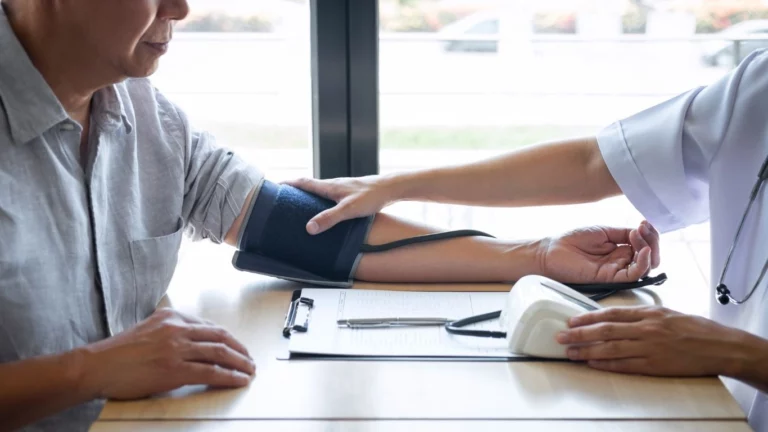Say Goodbye to Heartburn with These GERD Friendly Hydration Habits
If you’ve ever dealt with the uncomfortable burn of acid reflux or the nagging symptoms of GERD (Gastroesophageal Reflux Disease), you already know how much what we eat and drink matters. But what about hydration? Most people overlook how GERD friendly hydration habits can make a major difference. Working in a gastroenterology clinic, I’ve seen countless patients unknowingly worsen their reflux just by sipping the wrong drinks at the wrong time. Let’s dive into what your gut-friendly hydration routine should actually look like—because your esophagus deserves a break.
Why Hydration Even Matters When You Have GERD

When patients first come into the clinic complaining of persistent heartburn or regurgitation, they’re usually focused on what foods might be triggering it. That’s important, for sure—but hydration is just as crucial. The fluids we consume throughout the day directly affect stomach acid levels and esophageal sphincter pressure. If either gets thrown off, hello reflux.
Back when I was new in the field, I remember a patient—let’s call her Sandy—who swore she was eating clean. But she couldn’t figure out why her symptoms still flared up every afternoon. Turns out, she was drinking iced coffee and carbonated flavored water all day long. Once we swapped those for GERD friendly hydration habits, her symptoms took a nosedive.
The Role of Fluids in Digestion
Your digestive system relies on water to break down food, absorb nutrients, and move everything along smoothly. When you’re dehydrated, your body compensates by producing more acid—bad news for GERD sufferers. Staying properly hydrated can help dilute that acid and ease the workload on your stomach.
- Less acid production: Staying hydrated keeps things balanced.
- Supports motility: Water helps food and acid move out of your stomach quicker.
- Reduces reflux symptoms: Hydration can ease that burning sensation and chest pressure.
Drinks That Work *With* Your Stomach, Not Against It

Okay, so what are some go-to beverages that actually support your digestive system instead of aggravating it? Through experience and tons of patient feedback, here’s what we recommend in the clinic on a regular basis.
Water is Your MVP
This might sound obvious, but plain, filtered water is seriously underrated. It helps flush out irritants, keeps your system moving, and dilutes stomach acid. Just avoid chugging large amounts at once—small sips throughout the day are key.
Herbal Teas (But Choose Wisely)
Chamomile, slippery elm, and ginger tea (in moderation) are gentle on the stomach and can soothe inflammation. But steer clear of peppermint or spearmint teas—they can relax the lower esophageal sphincter and actually trigger reflux.
Alkaline Water: Fad or Function?
We’ve had some patients get good results from drinking slightly alkaline water (pH between 8 and 9). It may help neutralize stomach acid, though the science is still emerging. Worth a try if you’re curious, but don’t expect miracles.
- Stick with low-acid drinks.
- Drink smaller amounts more frequently.
- Avoid super cold beverages—they can shock your system.
Common Beverages That Worsen GERD (Yep, Even the “Healthy” Ones)

I can’t count how many times I’ve had to gently break it to a patient that their favorite green juice or sparkling mineral water might be sabotaging their gut. Some drinks just don’t sit well with reflux-prone stomachs, no matter how trendy or “natural” they are.
Culprits to Cut Back On
- Coffee and caffeinated teas: These relax the LES (lower esophageal sphincter), opening the door for acid to come up.
- Carbonated drinks: Bubbles = bloating = pressure on your stomach = reflux.
- Citrus juices: Orange juice, lemonade, and even grapefruit water can irritate your esophagus.
- Alcohol: Red wine, white wine, beer—none of them are GERD-friendly, sadly.
Look, I’m not saying you can never enjoy a cold soda or your morning latte again—but if your GERD is flaring, consider cutting these out for a bit and see how your body responds. Trust me, your gut will thank you.
Timing and Temperature: The Unsung Heroes of GERD Friendly Hydration Habits

Alright, so we’ve talked about what to drink. But how and when you hydrate is just as important when it comes to building GERD friendly hydration habits. I’ve had so many patients make huge strides just by adjusting their timing and ditching icy drinks.
When I first started as a medical assistant, I was guilty of downing ice water all day—especially during busy shifts. But I quickly learned (the hard way) that cold fluids can cause your stomach muscles to tense up, slowing digestion and making reflux worse. Once I made the switch to room temp or warm water, I noticed way less bloating and irritation by the end of the day. Small change, big difference.
Hydration Timing Tips That Work
- Don’t chug right before or after meals. Give your digestive system space to do its thing without getting overwhelmed.
- Sip slowly throughout the day. This keeps acid levels stable and supports smooth digestion.
- Avoid large amounts late at night. Drinking too much before bed can increase nighttime reflux symptoms—especially if you lie down too soon.
The Ideal Beverage Temperature
Warm or room temperature drinks are much gentler on your stomach lining. Think warm lemon water (just a splash of lemon for low acid), chamomile tea, or just plain warm water. It might sound boring, but your esophagus will appreciate the love.
Creating a Daily Hydration Routine That Supports Your Gut

Consistency is everything. We’re not just trying to fix a flare-up—we’re trying to prevent them from happening in the first place. That’s where a steady, personalized hydration routine can really shine. Here’s a little structure based on what we’ve seen work for GERD patients over the years.
Sample GERD Friendly Hydration Schedule
- Morning (6–8 AM): Start the day with a glass of room temperature water. Add a slice of cucumber or a splash of aloe vera juice if you want something a little extra soothing.
- Mid-Morning (9–11 AM): Sip on herbal tea or lightly infused water (ginger, apple, cucumber).
- Lunch (12–1 PM): Avoid drinking too much right before or during meals. A few sips are fine, but wait 30–60 minutes after eating to drink more.
- Afternoon (2–4 PM): Go for another round of gentle hydration—plain water or non-caffeinated tea works great.
- Evening (5–7 PM): Keep it light and warm if possible. No big gulps, especially close to bedtime.
Of course, listen to your body. Some days might call for more fluids, especially if it’s hot out or you’re more active. Just avoid the temptation to gulp large amounts all at once.
How to Track What Works for You (Because Everyone’s Gut Is Different)

Let me be real for a second—what works for one person might be totally off for someone else. I’ve had two patients follow the exact same plan with very different results. That’s why I always suggest keeping a hydration and symptom journal. It doesn’t have to be complicated—just a few quick notes each day can help you connect the dots.
What to Track:
- What you drank and how much
- Time of day
- Temperature (cold, room temp, warm)
- Symptoms after drinking (bloating, heartburn, etc.)
Over time, patterns will start to pop up. Maybe warm chamomile tea works like magic for you, or maybe even a tiny bit of citrus sends your reflux into overdrive. Knowing your triggers is empowering, and it helps you take control without second-guessing every sip.
Extra Hydration Boosters That Won’t Wreck Your Reflux
Sometimes plain water just doesn’t cut it—especially if you’re trying to rehydrate after a workout or a long day in the heat. Thankfully, there are ways to get that extra hydration without upsetting your stomach.
Hydrating Foods That Love Your Gut Back
- Cucumber: Super hydrating and gentle on the stomach.
- Watermelon: Low acid, refreshing, and packed with water.
- Leafy greens: High in water content and alkaline-forming.
- Zucchini and celery: Mild, crisp, and stomach-friendly.
Adding these into meals or snacking on them between meals helps boost hydration without relying solely on liquids—which can actually be a relief for folks dealing with frequent reflux.
Stay tuned, because next we’ll get into what to do when you need flavor or a hydration pick-me-up without turning to sugar-laden or carbonated drinks. There are some fun, creative ideas coming that I think you’re gonna love!
Flavor Without the Fire: Safe Ways to Jazz Up Your Hydration

Let’s be honest—plain water gets boring fast. I get it. Most patients tell me the same thing within the first week of starting a GERD friendly hydration habits plan: “I miss flavor!” Luckily, flavor doesn’t have to equal flare-ups. You can absolutely enjoy your beverages without sacrificing your gut comfort.
Back at the clinic, we’d often suggest these gentle, natural infusions to patients craving a little variety. I even started bringing a couple mason jars of infused water with me to work—my coworkers caught on quick, and we all ditched our fizzy drinks for the good stuff.
Infused Water Combos That Won’t Trigger Reflux
- Cucumber + Basil: Super cooling and refreshing—perfect for hot days.
- Apple Slices + Ginger: Adds a hint of natural sweetness and supports digestion.
- Blueberries + Mint: Use just a tiny sprig of mint to avoid over-relaxing the esophageal sphincter.
- Chamomile + Pear Slices: Gentle, soothing, and lightly sweet.
Steer clear of citrus-heavy infusions like lemon, lime, or orange. Even though they seem healthy, their acidity can aggravate symptoms in sensitive individuals.
Smart Substitutes for Common Trigger Drinks

If you’re struggling to ditch certain beverages—coffee, soda, or juice—it helps to have something satisfying to swap in. It’s not about deprivation. It’s about finding smarter choices that still bring joy without causing discomfort.
Instead of Coffee…
- Roasted chicory root tea: Has a similar bitter taste, but it’s caffeine-free and stomach-friendly.
- Warm golden milk: A blend of turmeric, plant milk, and a dash of cinnamon (avoid black pepper—it can be irritating).
Instead of Soda…
- Flat infused water: All the flavor without the carbonation.
- Cold herbal teas: Brew chamomile or ginger tea and chill it for a refreshing fizz-free drink.
Instead of Citrus Juices…
- Aloe vera juice (diluted): Go for organic, no-added-sugar types and mix a small amount with water.
- Pear or melon smoothies: Low acid fruits blended with water or oat milk make great, gut-friendly alternatives.
Try rotating through a few options so your hydration habits stay interesting. When you actually enjoy what you’re drinking, you’re way more likely to stay consistent—and that’s half the battle.
Hydration Pitfalls to Watch For (And How to Dodge ‘Em)
Even with the best intentions, it’s easy to slip into habits that feel healthy but actually stir up reflux. I’ve seen this happen countless times, both in the clinic and in my own routines. The trick is learning to spot those sneaky pitfalls before they trip you up.
Common Hydration Missteps:
- Overdoing carbonated waters: Even if they’re “natural” or sugar-free, the bubbles can still trigger bloating and reflux.
- Sipping during meals: A little is fine, but too much fluid during meals can dilute digestive enzymes and slow digestion.
- Late-night hydration binges: Drinking too much too close to bedtime? That fluid can put pressure on your LES when you lie down.
It’s all about moderation and timing. Keep a refillable bottle nearby, but don’t feel pressured to hit some magic number of ounces if your body’s saying “I’m good.” Listen to your thirst cues, trust your symptoms, and tweak as needed.
Bringing It All Together: Making GERD Friendly Hydration a Lifestyle
Here’s the thing—managing GERD isn’t about perfection. It’s about awareness, experimentation, and sustainable choices. Over time, those small tweaks to what, when, and how you hydrate will start adding up in the form of less heartburn, fewer flare-ups, and a lot more comfort throughout the day.
Personally, I’ve seen hydration become a turning point for many of the patients I’ve supported. Once they realized it wasn’t just about food but also about what they were drinking (and when), their whole approach shifted. It’s empowering to know that simple things—like choosing warm water over soda or swapping a post-dinner tea instead of wine—can have such a huge impact.
If you’re trying to build better hydration habits and manage GERD symptoms at the same time, you’re not alone. Start slow, stay curious, and keep listening to your body. It’ll tell you everything you need to know—one sip at a time.
References
- American Gastroenterological Association
- National Institute of Diabetes and Digestive and Kidney Diseases
- Mayo Clinic
Disclaimer
This article is for informational purposes only and reflects personal insights from experience working in a clinical setting. It does not replace medical advice, diagnosis, or treatment. Always consult a licensed healthcare provider regarding any medical concerns or before making significant changes to your diet or hydration routine.

Camellia Wulansari is a dedicated Medical Assistant at a local clinic and a passionate health writer at Healthusias.com. With years of hands-on experience in patient care and a deep interest in preventive medicine, she bridges the gap between clinical knowledge and accessible health information. Camellia specializes in writing about digestive health, chronic conditions like GERD and hypertension, respiratory issues, and autoimmune diseases, aiming to empower readers with practical, easy-to-understand insights. When she’s not assisting patients or writing, you’ll find her enjoying quiet mornings with coffee and a medical journal in hand—or jamming to her favorite metal band, Lamb of God.






